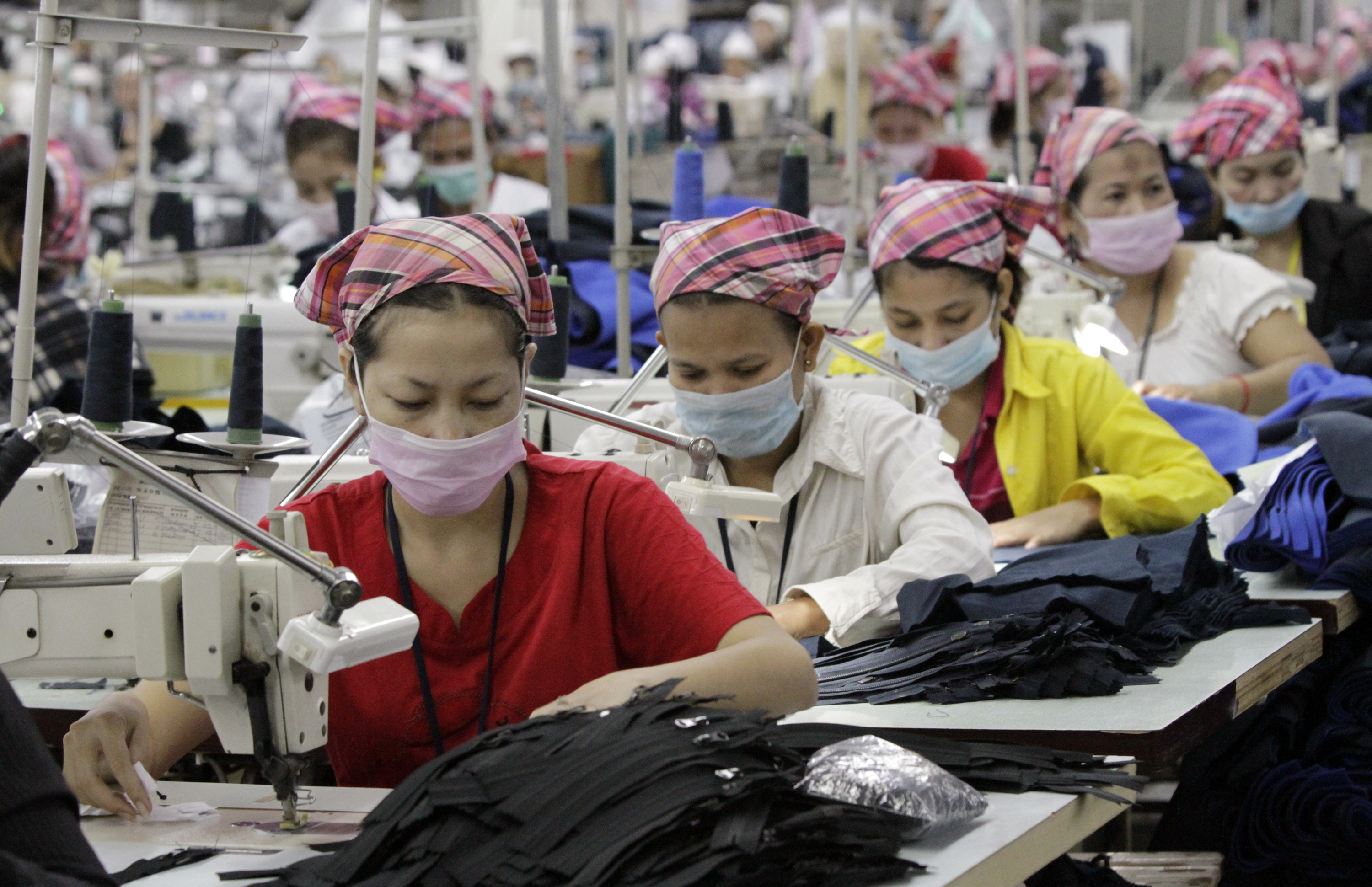
Campaign launched for Asian “fashion victims”

Swiss clothing companies do not pay seamstresses in Asia enough to live on, according to organisers of a new campaign.
Unions and non-governmental organisations (NGOs) are demanding workers be given an additional ten cents for every T-shirt they make. They are also exerting pressure for a universal wage model.
“Despite working 13-hour days, a seamstress earns only 20-60 per cent of what she needs to live on,” according to the Berne Declaration, an umbrella body of NGOs.
The organisation, which has promoted more equitable, sustainable and democratic North-South relations since 1968, is the Swiss representative of the “Clean Clothes Campaign” (CCC). This aims to improve working conditions and wages for workers in producing countries.
The precarious situation of the estimated 30 million people involved in the garment-making industry has worsened over the past three years, according to the CCC, which pointed to recent protests by workers in Bangladesh.
“Wage dumping there is considered a locational advantage to attract companies and investors. Bangladesh’s clothing exports are at a record high,” said Berne Declaration and CCC spokeswoman Christa Luginbühl. “The profits go to the textile brand companies.”
Tough competition
The price for this increasingly tough competition is paid by the factory employees, who are mostly women.
Whether in China, India, Pakistan or Sri Lanka, the minimum wages paid in those countries rarely suffice for food and certainly not for transport, medicine or education. What’s more, these women don’t have time to look after their children.
“If the workers in one country fight for their wages and working conditions, the companies will move to another country where the wages are lower,” said a spokesman from the Asia Floor Wage Campaign (AFW), which comprises around 70 unions, NGOs and scientists.
“All seamstresses in Asia need higher wages,” he said.
Wage model
In response to the dumping problem, the unions of the AFW have come up with their own wage model.
For them, a living wage involves not more than 48 hours’ work a week, without overtime. The wage should also cover the needs of the worker and at least some of her family.
The cost of food should not exceed 50 per cent of total expenses and should cover a “shopping basket” of around 3,000 calories per person per day.
“The fact that a model for a living wage now exists is great progress,” Luginbühl said. “Until now companies claimed there was no widely supported model for calculating living wages. It’s striking that the AFW model originated in the regions and from the workers to prevent relocation to even cheaper production countries.”
The Berne Declaration and the CCC are now calling on Swiss clothing companies to discuss the AFW model and steps for implementing a wage increase.
“Up until now most brand companies haven’t committed themselves to paying a living wage. They stick to the legal minimum wage, knowing full well that it’s not enough to survive on,” Luginbühl said.
Scepticism
Companies feeling the heat include Charles Vögele, Coop, Migros and Tally Weijl.
Within one week of the campaign’s launch, more than 3,200 people have protested on the website against wage dumping. It should be considerably more by autumn, when the various AFW representatives come to Switzerland for a working visit.
Retailers Coop and Migros said they were ready to engage in dialogue about the demand for ten cents more wage for every T-shirt but remained “sceptical about the implementation”.
They said it was unlikely that the ten cents would actually go to the seamstress and that Switzerland was too small in the global production system to have any effect.
The lingerie and swimming costume firm Calida scored especially low points, although Luginbühl said it wasn’t the campaign’s intention to pick on individual companies.
“All companies are part of the problem,” she said.
Progress
Since 2004 the Berne Declaration and the CCC have judged firms in the clothes industry for transparency in the production and supply chain, social standards, implementation and controls.
“The grievances with the fashion and clothing industry have been known for a long time,” Luginbühl said, adding that although the CCC has to repeat its demands, the campaign has been successful in getting working conditions and wages placed on companies’ agendas.
“The question of what they are producing has become relevant for Swiss firms. That wasn’t the case 20 years ago. Another sign of progress is that child labourers have to a large extent been driven out of factories.”
Viera Malach, InfoSud/swissinfo.ch (Translated from German by Thomas Stephens)
Retail, brand and importing companies interested in improving conditions in their supply chain can join the Business Social Compliance Initiative (BSCI).
The organisation was founded in 2003 and is based in Brussels.
Its members must adhere to all valid national laws concerning minimum working conditions in addition to conventions of the International Labour Organization and the United Nations.
However, the AFW and CCC believe the BSCI doesn’t go far enough, because it is concerned only with minimum standards.
“Minimum wages aren’t enough – we’re calling for living wages that enable a seamstress to live in dignity,” said CCC spokeswoman Christa Luginbühl.

In compliance with the JTI standards
More: SWI swissinfo.ch certified by the Journalism Trust Initiative



























You can find an overview of ongoing debates with our journalists here . Please join us!
If you want to start a conversation about a topic raised in this article or want to report factual errors, email us at english@swissinfo.ch.